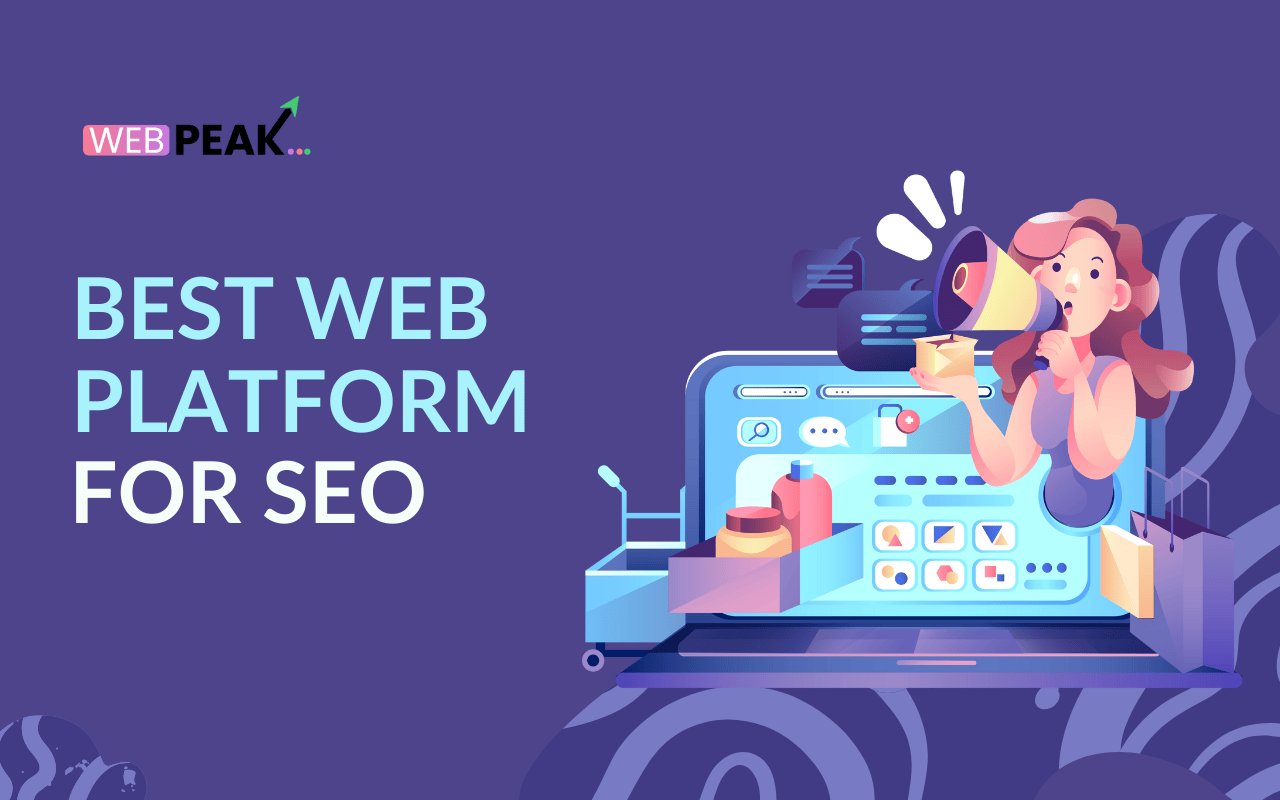Best Web Platform for SEO: A Comprehensive Guide
Search Engine Optimization (SEO) forms the foundation of successful digital marketing. It helps businesses improve their online visibility and attract organic traffic. Choosing the right web platform for SEO can significantly impact your website’s performance. This guide will explore the best web platforms for SEO, highlighting their key features, pros, and cons.
What to Look for in an SEO-Friendly Web Platform
Before diving into the top platforms, let’s discuss the key features an SEO-friendly web platform should have:
- Customizable URLs: The platform should allow you to create clean and descriptive URLs.
- Mobile Responsiveness: A mobile-friendly design is critical for ranking in search engines.
- Fast Loading Speeds: Slow websites can hurt your rankings and user experience.
- Built-in SEO Tools: Features like metadata editing, XML sitemap generation, and analytics integration are essential.
- Scalability: The platform should grow with your business.
1. WordPress
Why WordPress?
WordPress ranks among the most widely used content management systems (CMS) globally. It’s a favorite among SEO experts due to its flexibility and extensive plugin library.
Key Features
- SEO Plugins: Make it easy to optimize your site.
- Customizable: You can edit everything from URLs to metadata.
- Responsive Themes: A wide range of mobile-friendly themes is available.
- Community Support: A large community of developers and users provides ample resources.
Pros
- User-friendly interface
- Huge plugin ecosystem
- Great for both beginners and experts
Cons
- Requires regular updates
- Hosting and domain setup needed
Best For
Bloggers, small businesses, and anyone looking for a customizable platform.
2. Wix
Why Wix?
Wix is a user-friendly website builder with built-in SEO tools. It’s ideal for those who want to create a website without coding knowledge.
Key Features
- SEO Wiz: A step-by-step SEO guide for beginners.
- Mobile Optimization: All templates are mobile-friendly.
- Fast loading speeds: Websites on Wix are optimized for performance.
- App Market: Access to additional SEO apps and tools.
Pros
- Easy to use
- No coding required
- Free plan available
Cons
- Limited customization compared to WordPress
- Not ideal for large-scale websites
Best For
Small businesses and individuals new to website building.
3. Shopify
Why Shopify?
Shopify is a leading platform for e-commerce websites. It’s designed to help online stores succeed in SEO.
Key Features
- Built-in SEO Tools: Edit meta titles, descriptions, and alt text.
- Secure Hosting: Fast and secure hosting included.
- Mobile Optimization: Responsive themes for all devices.
- Analytics: Detailed reports on site performance.
Pros
- Easy to manage products and inventory
- Excellent support
- Optimized for e-commerce
Cons
- Monthly subscription fees
- Limited customization outside the Shopify ecosystem
Best For
E-commerce businesses looking for a reliable and SEO-friendly platform.
4. Squarespace
Why Squarespace?
Squarespace is known for its visually appealing templates and ease of use. It’s a great choice for creatives who want to showcase their work.
Key Features
- Modern Templates: Beautiful designs that are mobile-responsive.
- SEO Settings: Built-in tools for editing metadata and creating clean URLs.
- Secure Hosting: Reliable hosting with free SSL certificates.
- Blogging Features: Perfect for content creators.
Pros
- Easy to use
- Stunning design options
- Good for branding
Cons
- Limited customization for advanced users
- Higher costs than some competitors
Best For
Photographers, designers, and small businesses focused on branding.
5. Weebly
Why Weebly?
Weebly is another beginner-friendly website builder. It’s suitable for small businesses and personal projects.
Key Features
- Drag-and-Drop Builder: Simplifies website creation.
- SEO Tools: Basic tools for editing metadata and URLs.
- Mobile-Friendly Designs: Responsive templates included.
- App Center: Access to additional features and integrations.
Pros
- Easy to use
- Affordable plans
- Suitable for beginners
Cons
- Limited scalability
- Fewer features compared to WordPress
Best For
Small websites and personal blogs.
6. Magento
Why Magento?
Magento is a powerful platform for large e-commerce businesses. It offers advanced SEO features for complex websites.
Key Features
- Advanced Customization: Fully customizable for unique needs.
- SEO Tools: Comprehensive options for optimizing large catalogs.
- Scalable: Ideal for growing businesses.
- Mobile Optimization: Responsive design support.
Pros
- Highly flexible
- Excellent for large stores
- Strong community support
Cons
- Steep learning curve
- Higher costs for hosting and maintenance
Best For
Large e-commerce businesses with specific requirements.
Conclusion
Choosing the best web platform for SEO depends on your needs and goals. Here’s a quick summary:
- WordPress: Best for flexibility and scalability.
- Wix: Ideal for beginners who need simplicity.
- Shopify: Perfect for e-commerce websites.
- Squarespace: Great for creatives and branding.
- Weebly: Suitable for small projects.
- Magento: Best for large and complex e-commerce businesses.
Consider your financial capacity and needs before moving forward. A platform that aligns with your business needs will help you achieve better SEO results and grow your online presence.





